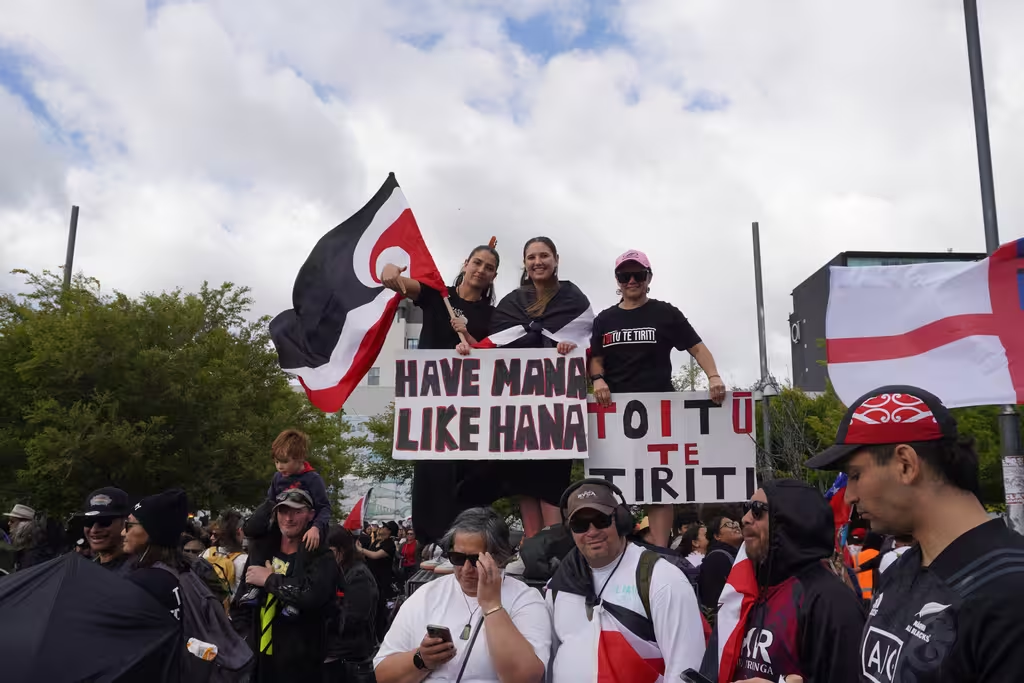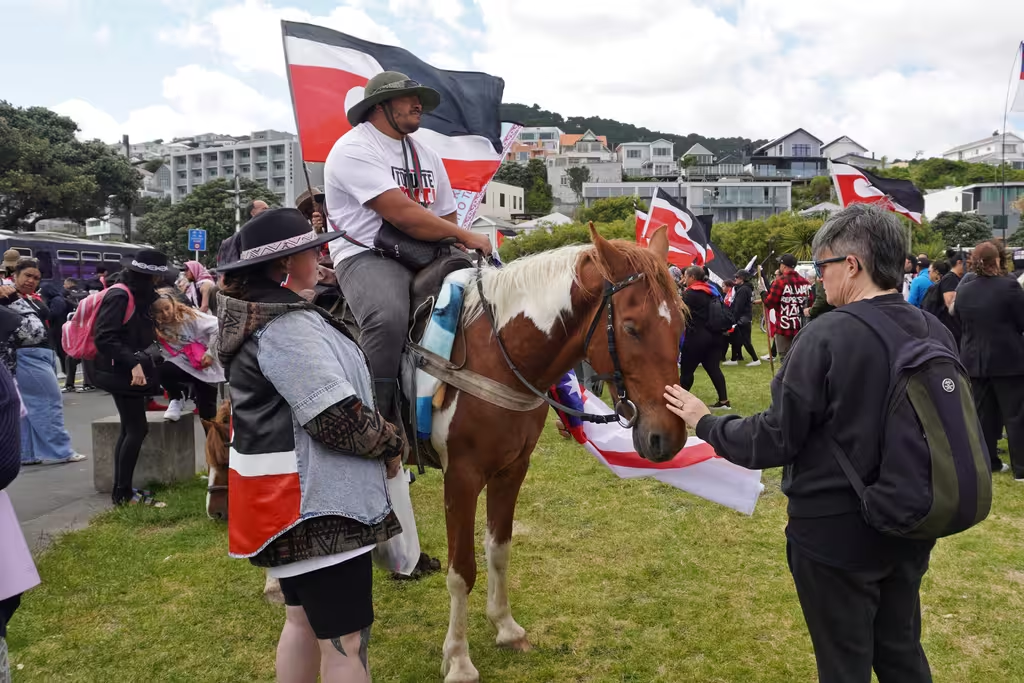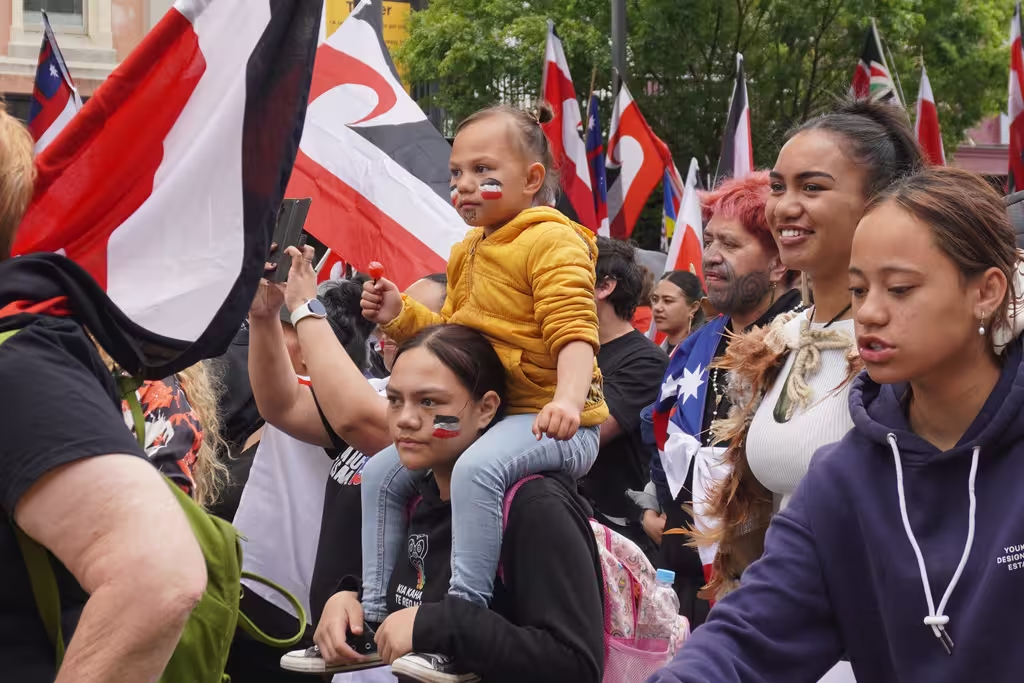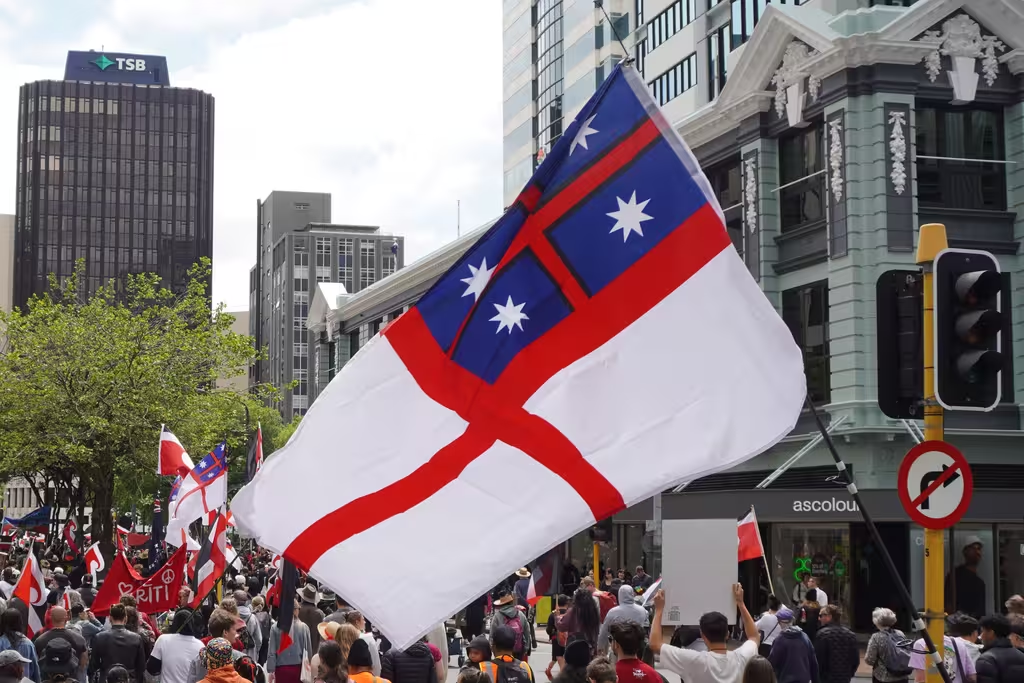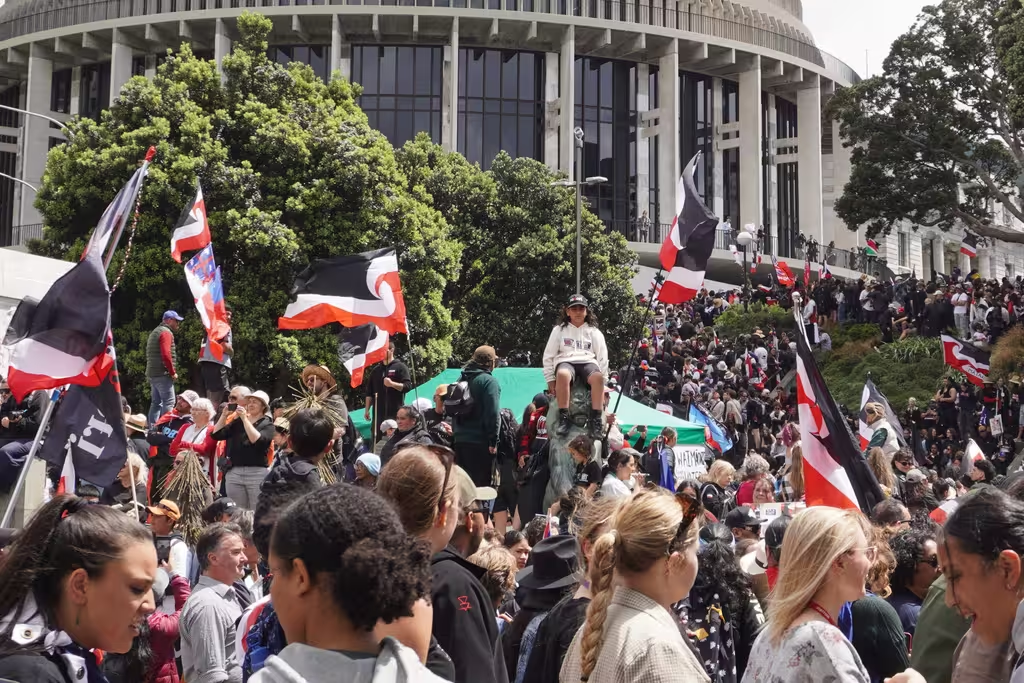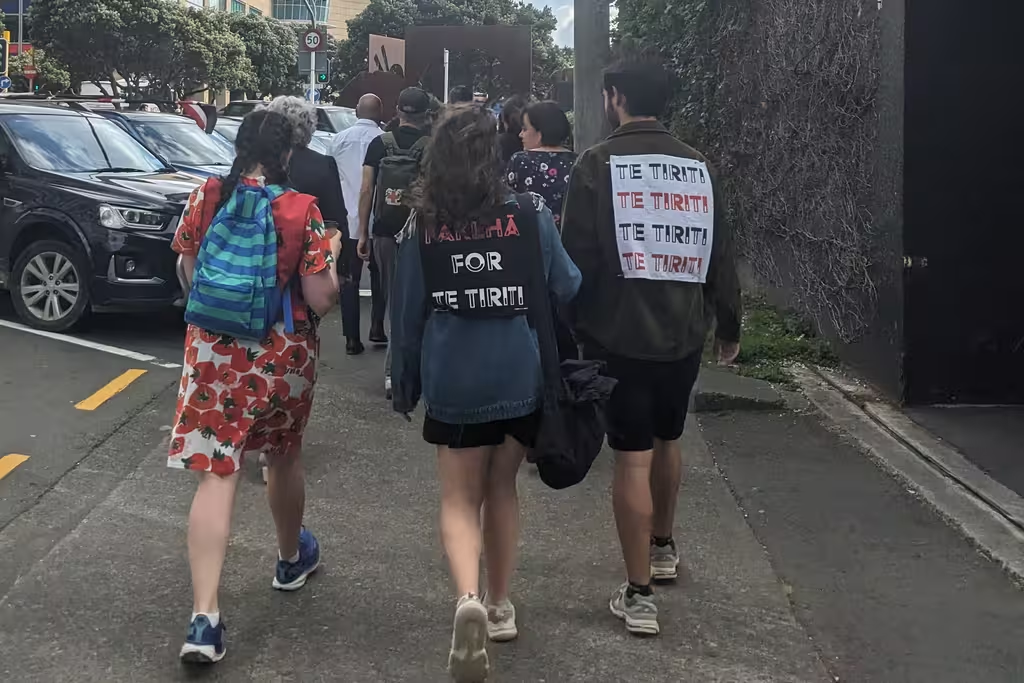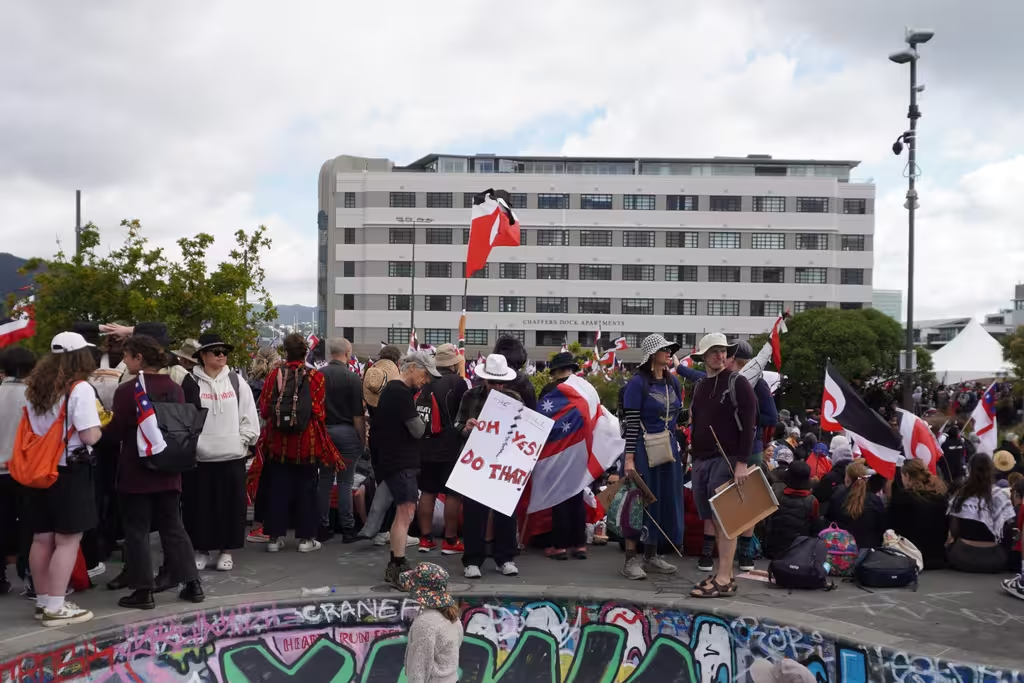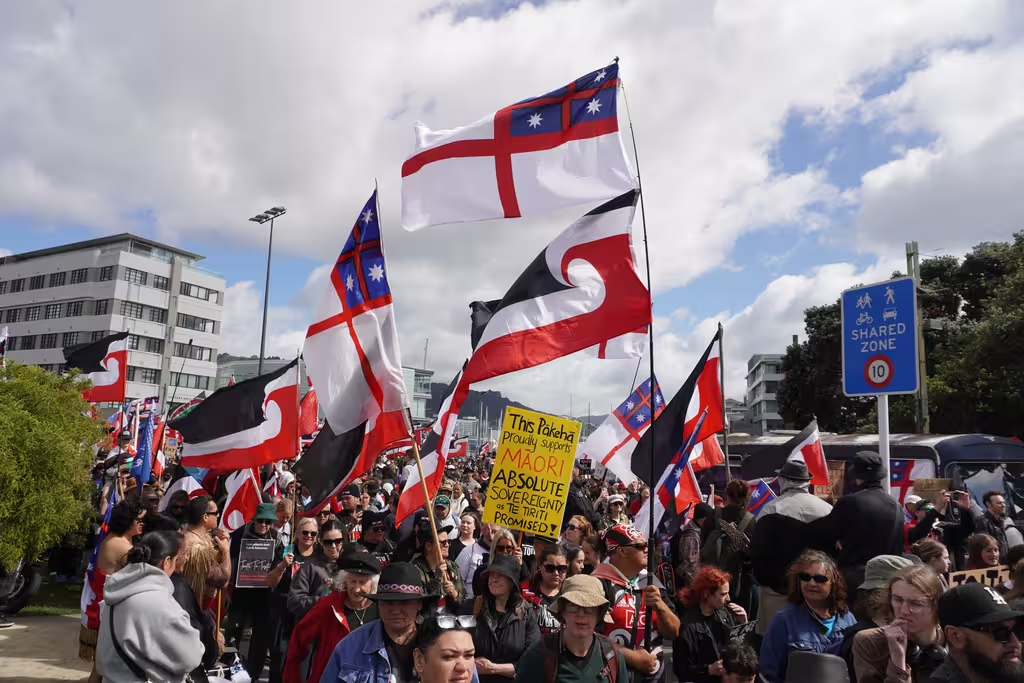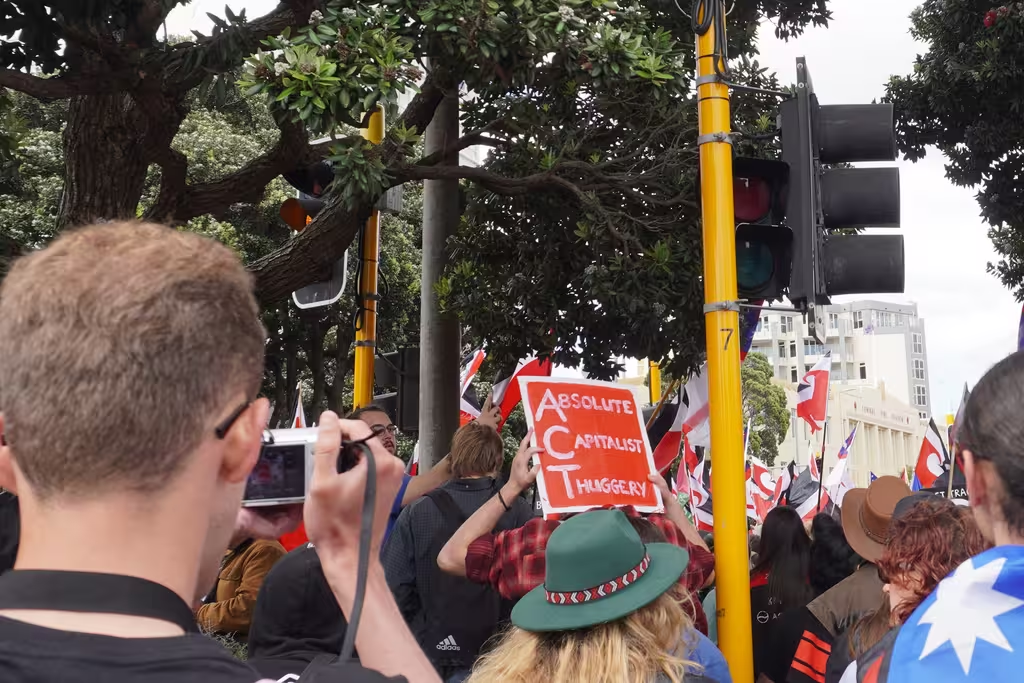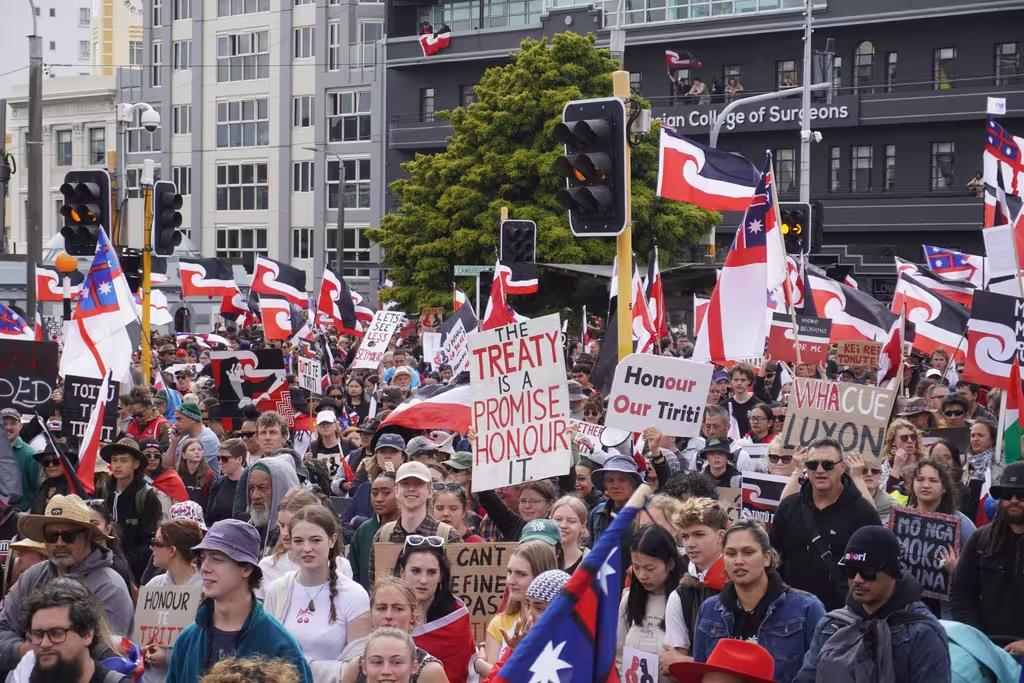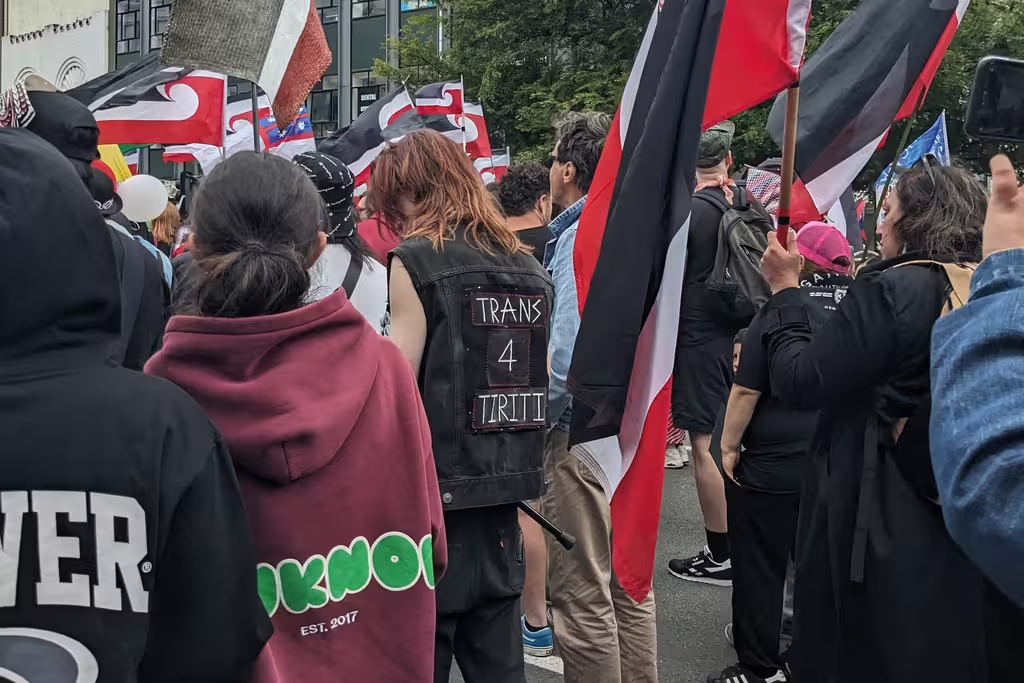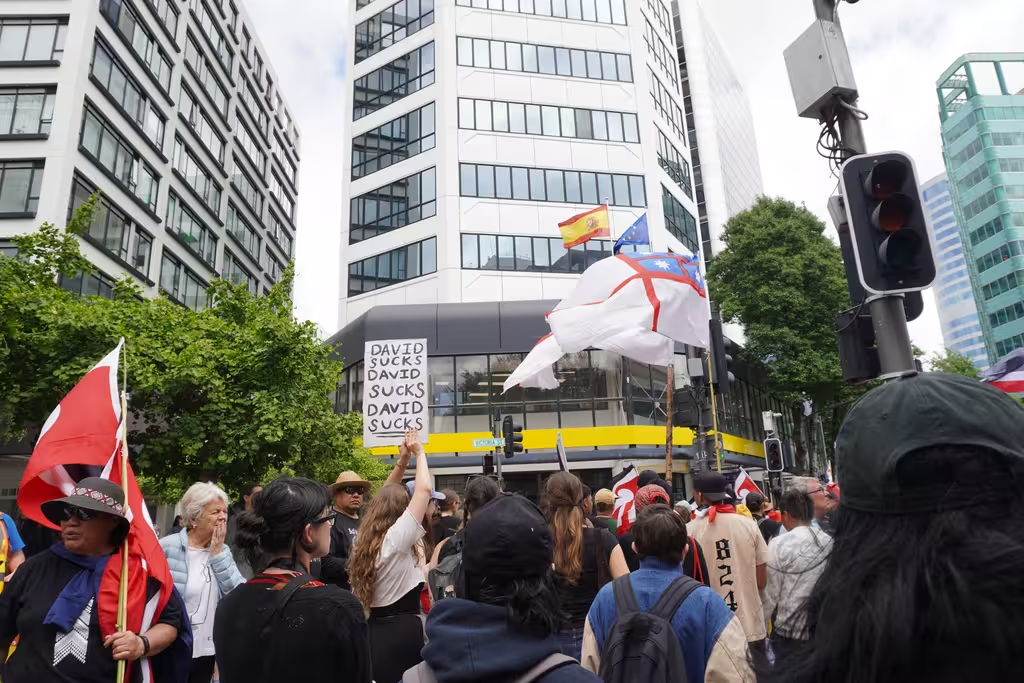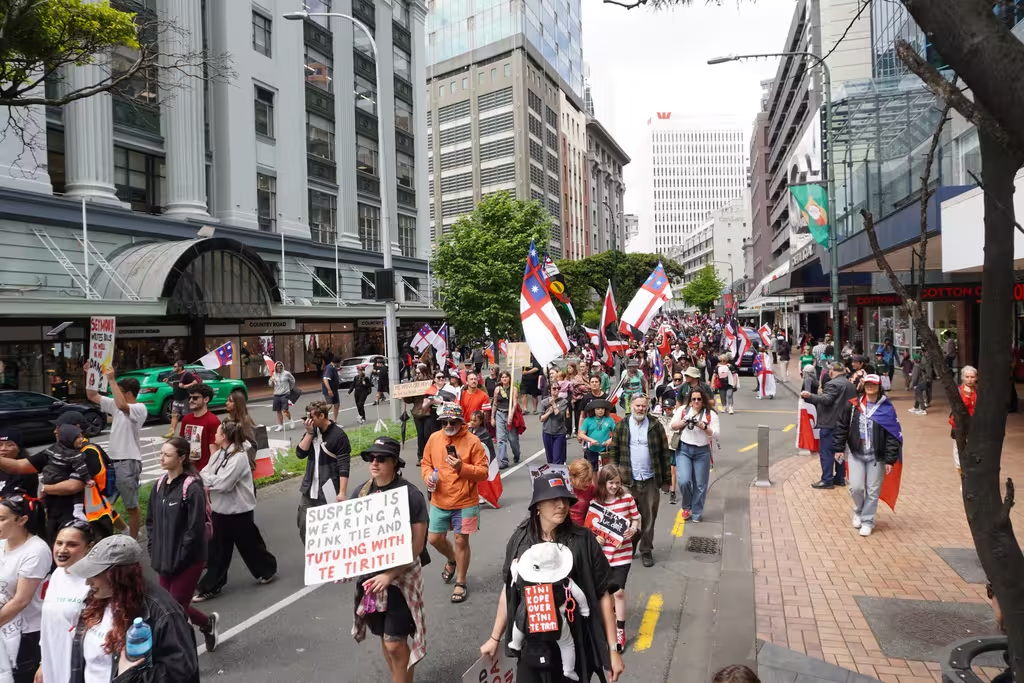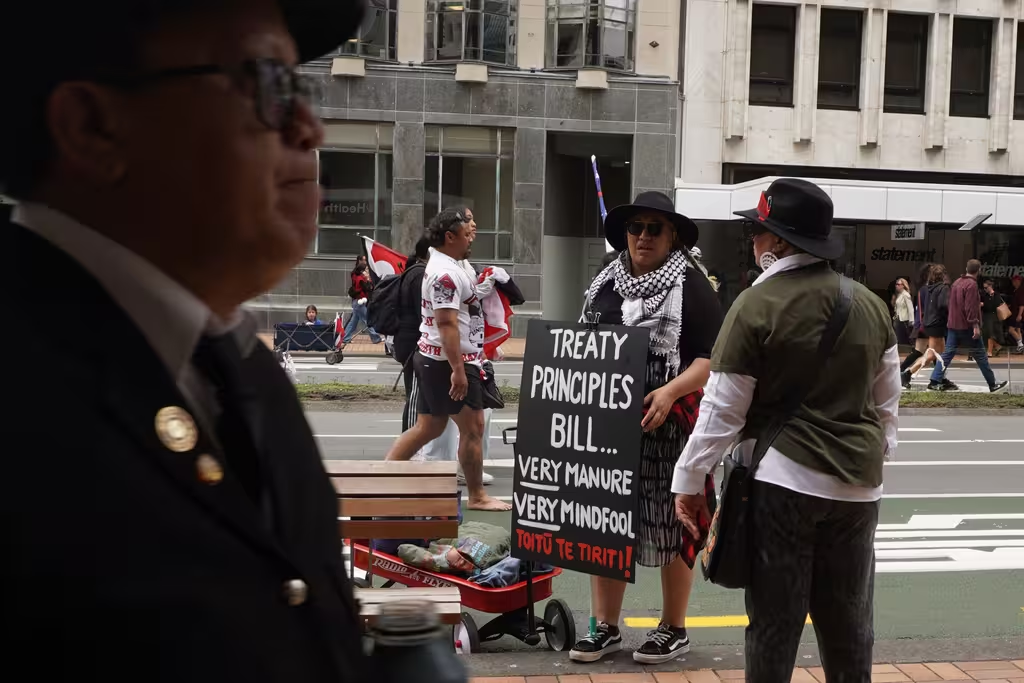This last Tuesday, the Hīkoi mō Te Tiriti arrived in Pōneke/Wellington after setting off eight days ago from Te Rerenga Wairua / Cape Reinga (as well as on the South Island). Crowd size estimates for Parliament ranged from 42,000 to 55,000, undoubtedly the largest ever for this country. New Zealand’s population is about 5 million, most of which does not live in Wellington.
The Māori, or tangata whenua, organizers of the hīkoi invited settlers, or tangata Tiriti, to stand beside them on this demonstration, and I felt fortunate to be able to participate in the hīkoi. A historic moment, and also amazingly well executed in general.
The demographics were super diverse, including grandparents and many kids (some carried around in wagons). The Māori make up 18% of the population, but more than that at the hīkoi. Asian people are about the same proportion of the Wellington population, but there were fewer than 18% Asians.
I’d characterize the mood of the hīkoi as “determined”. We wanted to send a strong statement that the Treaty Principles Bill should not be further considered. I should hope that the politicians are listening.
Marches come with chants, and there were the common ones around here that I don’t know, being from overseas. Also waiata, or songs, which I don’t know either.
In terms of organization, I noticed the guy walking around handing out sunscreen; the guy telling people to write phone numbers on their kids’ arms; the manaaki station with water and sunscreen; the first aiders walking around; and the marshals making sure people didn’t take a wrong turn.
Background
How did we get here? Te Tiriti o Waitangi is considered a founding document of (the settler state of) New Zealand, which gave the British Crown the authority to establish a government, in an agreement with over 500 Māori rangatira (chiefs), signed in 1840.
To me, the best framing of Te Tiriti’s effect in New Zealand today is that it “protects all New Zealanders from corporate exploitation” (thanks to Ryan Ward in Newsroom). It is very much telling that the libertarian Atlas Network is a strong supporter of the ACT party, which is behind this bill.
The Spinoff documents a number of cases where Te Tiriti was used to successfully challenge privatization of state assets, primarily what was known as the Lands case.
The operative clause of Te Tiriti for these purposes is Article 2 about rangatiratanga. As stated by Te Kāhui Tika Tangata The Human Rights Commission, this is about:
the collective rights and responsibilities of Māori, as Indigenous people, to live as Māori and to protect and develop their taonga (Article 2 – rangatiratanga/self-determination)
Canada
I also reflected on the Canadian perspective. The settler state of Canada’s founding document is the 1867 British North America Act. There are treaties with First Nations and Inuit, but they do not have the central role of Te Tiriti. The collective rights of indigenous people on Turtle Island are not going to save Canada from corporate exploitation.
I strongly believe that we all share the duties of citizenship, which include fighting corporate interests in their inevitable conflict with the interests of the populace. In New Zealand, I’ll do what I can myself and in collaboration with my fellow humans, but I also am grateful that this extra form of protection for our taonga, or treasures, exists.
Having said that, this whole saga brought to mind Elijah Harper and his role in defeating the Meech Lake accords in Canada.
Well I was opposed to the Meech Lake Accord because we weren’t included in the Constitution. We were to recognize Quebec as a distinct society, whereas we as Aboriginal people were completely left out. We were the First Peoples here—First Nations of Canada—we were the ones that made treaties with the settlers that came from Europe. These settler people and their governments didn’t recognize us as a Nation, as a government and that is why we opposed the Meech Lake Accord.
